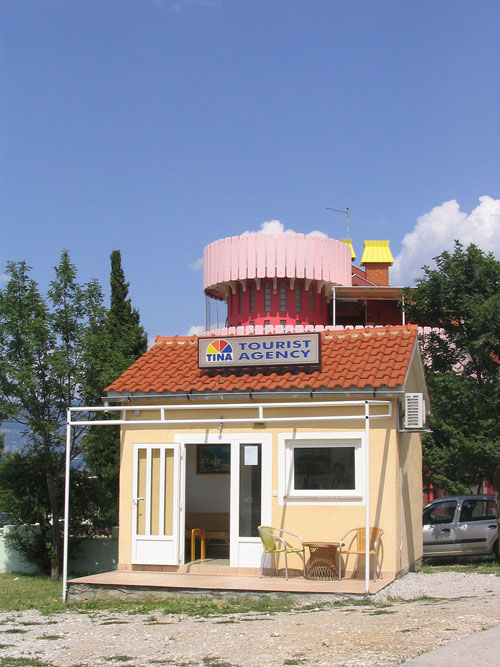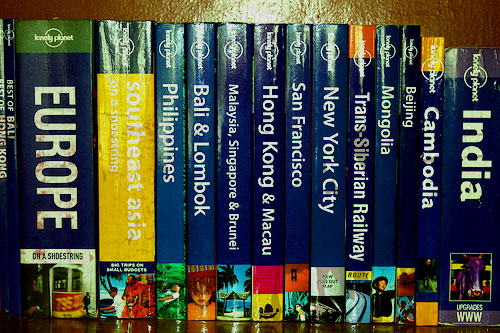With the world wide interwebs at your fingertips, you clearly don’t need a traditional guidebook to plan and research your trip any more. And with a few handy resources you may not have thought of, you can get everything you need to know in one place.
Vagabondish is reader-supported. When you buy through links on our site, we may earn a small affiliate commission. Read our disclosure.
Tourism Offices
Any country and many large cities have tourism offices devoted to all things tourism. They exist to promote local businesses, and to entice travelers to travel to their delightful locales.
The tourism office website is often a one-stop shop for everything you need to know: culture, customs, visa requirements, places to stay, tour packages, places to eat – you name it.
Insider’s Tip: Look for the “press” or “media” links. They’re often hard to find, buried at the bottom of the page or concealed amidst a mass of other information. But looking for it will prove beneficial: you’ll find consolidated fact sheets, press releases, useful links, and lots of great “insider” information which is meant to pave the way for a member of the media to travel through and develop interesting stories.

Tourism Office, Candyland Croatia © Ruben & Tina
I’ll be heading to Malaysia (among other destinations) shortly, so I started researching my trip by visiting their tourism website. I discovered maps, videos, pictures, quick links with facts & figures, and even stories of previous travelers’ personal experiences. There are also widgets to help me plan my trip and find a place to stay.
With a little bit of digging I discovered that scuba diving is fast becoming Malaysia’s biggest tourism industry, with profiles of the best places to dive. I also learned that they have tons of caves with sacred drawings and hidden temples, golf destinations, wedding planning facilities, and numerous other activities to interest all walks of life.
I even discovered that Malaysia is the destination of choice for long-term stays (with incentives for people to stay for 10 years), and the government is paving the way for people with the financial ability to sustain themselves to move there, buy houses and cars, and educate their children.
The Media link on this site is small (as with most tourism sites), but once I found it, it provided me with facts and figures, press releases, and ideas of things to do in Malaysia. Where else could I have discovered that I’ll be there just in time to see the International Squid Jigging competition? Not to mention the International Kite Festival, the Home Show (sure to provide interesting insight into the lives and homes of the Malay), or the Buddhist holiday Wesak.
How to Find Tourism Offices:
- Perform a google search by typing in the destination + tourism board. (eg: “Malaysia + tourism board”)
Convention & Visitors Bureaus
Often loosely associated with the tourism bureaus, the convention & visitors bureaus are another interesting resource for unbiased information. They are usually non-profit organizations dedicated to improving businesses in the community. Tourism is of course a natural fit for this cause.
They tend to be a little more specialized in their focus, providing information on the exhibitions and conventions in town, and catering to groups. However everybody who attends a convention from out of town needs to know where to go to let off some steam and where to sleep for the night, and these sites can provide some good insight.
For my Malaysian research, I found the Malaysian Conventions & Exhibitions page, but this time I didn’t discover anything I couldn’t find on the tourism site. This is not always the case, of course.
How to find Convention & Visitors Bureaus: Again, you can find them in two ways:
- Visit the Directory of Worldwide Bureaus
- Perform a google search for the destination + convention & visitors bureau (eg: “Malaysia + convention & visitors bureau”)

Old Travel Guidebooks © The Wandering Angel
International Destination Marketing
The International Destination Marketing website is an offshoot of convention & visitors bureau research, but bears noting in a category all its own. It not only consolidates information about convention & visitors bureaus around the world, but it also provides a handy resource center on many destinations of choice.
By clicking on the Travelers section, I discovered the Official Travel Guide, which is the Destination Marketing website’s portal for travelers to research destinations, get trip ideas, and even help to book your trip.
About.com
About.com is also a great resource for travel research. Check their travel section, then go ahead and narrow your search. Spend some time here and peruse the world by your activity of choice, the type of traveler you are, or the tried-and-true method of searching by location.
The Malaysia section included oh-so-much pertinent information for my upcoming trip, I’m almost overwhelmed! In fact, I added climbing Mt Kinabalu (Southeast Asia’s tallest mountain) as one of the items to my upcoming itinerary solely due to my findings on this site.
These resources will provide much of the information you would find in a guidebook, but without the author’s biases or inconsistencies. You can print off what you need to know, book activities and accommodations, and step off that plane already acquainted with everything you need to know to make your trip a success.
So whether you are actively planning a trip, deciding on where to go next, or just plain daydreaming, you will now have ample ammunition to go forth and take the world by storm!
This is of course by no means an exhaustive list of research portals ”¦ what online tools do you like to use? Share them with us in the comments below!


